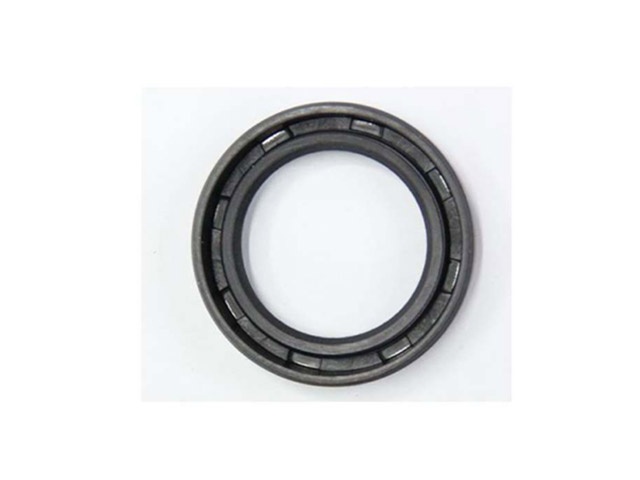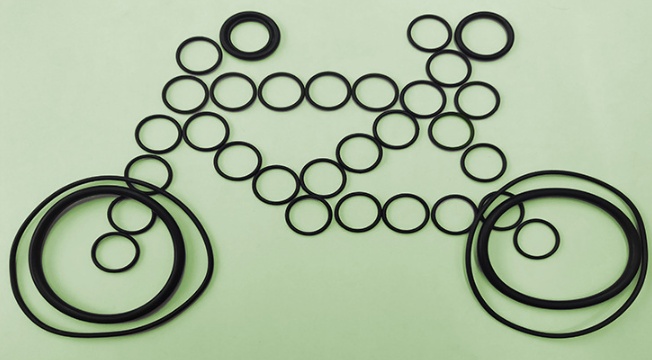When you hit the road, the suspension system’s job is to protect you from the harsh vibrations and bumps that the road brings. But how do you protect your suspension system from the harsh elements of the road? Enter the unsung hero of the automotive world with the car shock absorber sealing product. These seals are designed to keep contaminants such as dirt, dust and moisture out of the shock and prevent damage. Shock absorbers are responsible for reducing the vibrations and shocks that occur when driving over rough terrain, and without proper sealing, they can quickly fail.
Common materials for car shock absorber sealing product
Several materials are commonly used for shock absorber seals, including nitrile rubber, silicone rubber, polyurethane, and Viton. Each material has unique properties that make it suitable for specific applications.
Nitrile rubber
Nitrile rubber, also known as Buna-N or NBR, is a synthetic rubber widely used in sealing applications due to its excellent oil and fuel resistance. Nitrile is also resistant to abrasion and tear, making it ideal for general purpose sealing applications. The material has a temperature range of -40°C to 120°C (-40°F to 248°F) and can be used in static and dynamic sealing applications.
Silicone Rubber
Silicone rubber is a synthetic elastomer known for its high temperature resistance and excellent flexibility. The material can withstand temperatures up to 250°C (482°F), making it ideal for high temperature sealing applications. Silicone rubber is also highly resistant to water, chemicals and UV radiation, making it ideal for outdoor applications. However, silicone rubber is not recommended for use with fuels, oils or solvents.
Polyurethane
Polyurethane is a synthetic material known for its durability and resistance to abrasion, tearing and impact. The material is often used in heavy-duty sealing applications, such as those found in construction and mining equipment. Polyurethane has a temperature range of -40°C to 80°C (-40°F to 176°F) and can be used in static and dynamic sealing applications.

fluororubber
Viton, also known as FKM or Viton, is a synthetic rubber that is highly resistant to chemicals, fuels and extreme temperatures. The material can withstand temperatures up to 300°C (572°F), making it ideal for high temperature sealing applications. Viton is also resistant to ozone, weathering and aging, making it ideal for outdoor applications. However, fluoroelastomers are generally more expensive than other elastomeric materials.
Several factors must be considered when selecting the best material for your car shock absorber sealing product. Operating conditions, temperature range, chemical resistance, durability and cost all play a role in determining the best material for your specific needs.
The operating conditions of the vehicle’s suspension system are an important consideration when selecting an automotive shock absorber oil seal material. For example, if the suspension system is exposed to high temperatures, such as in racing or heavy-duty applications, a high-temperature resistant material such as silicone rubber or Viton may be a better choice.
The temperature range of the material is also an important consideration. If the sealing application requires a material that can withstand extreme temperatures, such as in high temperature sealing applications, a material with a high temperature range, such as Viton, may be the best choice.
If the sealing application involves exposure to chemicals or fuels, a material with good chemical resistance, such as Viton, may be the best choice. Nitrile and silicone rubbers are also good choices for applications requiring oil and fuel resistance.
Material durability is an important consideration, especially for heavy-duty applications. Polyurethane is known for its durability and resistance to abrasion, tear and impact, making it ideal for heavy-duty sealing applications.
Finally, material cost is also an important consideration. Some materials, such as Viton, are more expensive than others, such as Nitrile. However, the higher cost may be justified in applications that require the unique properties of the material.
In summary, selecting the best material for a car shock absorber sealing product requires careful consideration of several factors, including the operating conditions of the vehicle’s suspension system, the material’s temperature range, chemical resistance, durability, and cost. Nitrile, silicone, polyurethane and Viton are all commonly used materials for shock absorber seals, each with unique properties. By choosing the right material based on the specific requirements of your application, you can ensure that your automotive suspension system is protected and performing at its best.
Related Products












